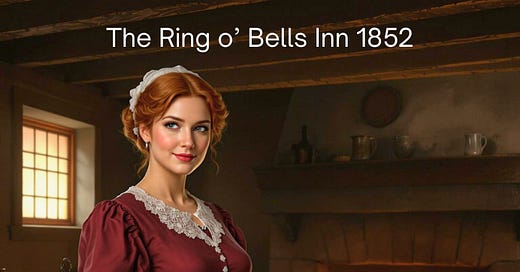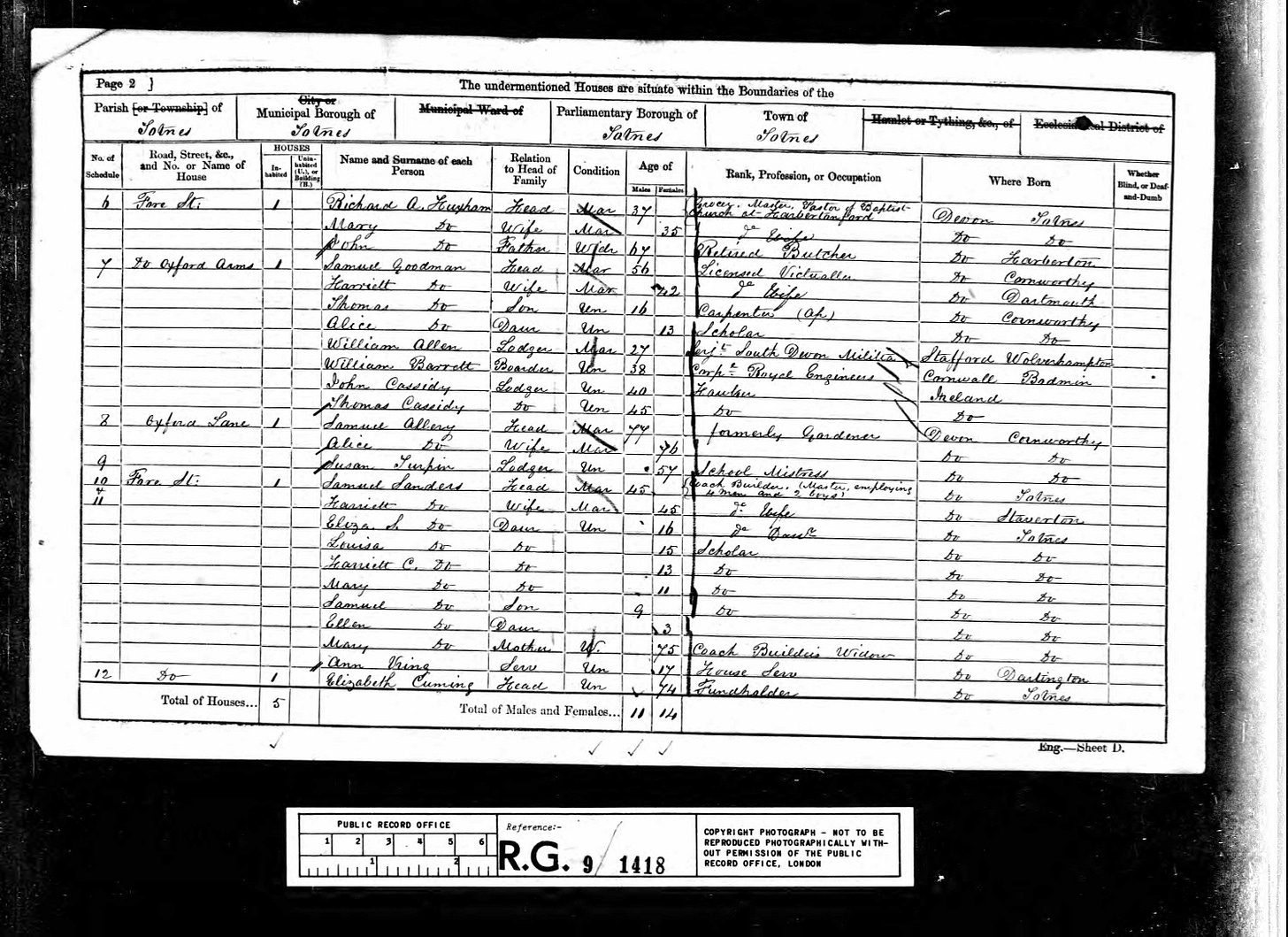Image by Flux-1 Kontext June 2025
Questions for Harriet: 🌿 Harriet Allery (1819–1888) — Totnes, Devon You visit her in a modest cottage in the 1870s, a widow reflecting on a life of rural devotion. What was it like to marry at fifteen—were you frightened, excited, or both? How did you manage a household with so little and still raise three children? When you go to the Totnes market, what do you look forward to most? Do you remember a moment in your life as an Innkeeper's wife when you felt truly proud? What remedies or cures did your mother teach you that still serve your family? How did you feel when the railway came through—hopeful, or wary of change? If you could choose one hymn to be sung at your funeral, which would it be? What do you miss most about the way things were when you were a child? Has your faith ever been tested? If so, how did you find your way back? What do you hope your children remember most about you?
Harriet and Samuel Goodman managed the Ring o’ Bells Inn at Bishops Steignton for over a decade, according to the census records for this family.
Ancestry.com June 2025
Before that, in 1861, Samuel was the licensed Victualler at The Oxford Arms in Totnes. Harriett’s parents, Samuel Allery and Alice Pillage, were living right next door.
Chapter 4: The InnKeeper’s Wife
Do you remember a moment in your life as an Innkeeper’s wife when you felt truly proud?
“I wouldn’t trade that moment for all the fine parlours in Totnes.”
Ah, yes—I do remember. It was the Harvest Fair of ’52, when the Ring o’ Bells was lit up like midsummer and full to bursting. Farmers rolled in with the mud still on their boots, and even the mayor stopped by for a pint of cider and a word with Samuel. The air was thick with tobacco smoke and fiddle tunes, and I had the kitchen running like clockwork—roast joints turning, pasties piping hot, and every table laid with our best linen, which I’d scrubbed white as chapel cloth.
But the proudest moment came not from the bustle, nor the coin in the till, though both were welcome. No—it was when old Mrs. Trudgian, half-blind and near eighty, called me over with a crooked finger. She said, “Harriet Goodman, your hearth is warmer than any fire, and your hands have more comfort in them than the apothecary’s whole shelf.” I didn’t know what to say. I just smiled and set another hot brick under her shawl.
That evening, when the laughter softened and folks began to sing—Come, ye thankful people, come—I stood behind the bar with Samuel, our sleeves rolled and our cheeks flushed, and I thought: This is it. This is home, and I’ve made it so.
“I wouldn’t trade that moment for all the fine parlours in Totnes.”
Perplexity provides a history of the Pubs.
The Ring of Bells in Bishopsteignton has a well-documented history, including notable details from the 1860s
Ring of Bells, Bishopsteignton: 1860s History
Location: Situated at the corner of Radway Hill and Fore Street, the original inn was a beer house. Over time, the building now housing the saloon bar was incorporated into the pub, having previously been a dwelling house 12.
Architectural History: The building is reputedly designed by John Nash (the architect famed for remodelling Buckingham Palace), with William Boone as the builder. The structure was likely constructed or remodelled in the early 19th century, and it remains a Grade II listed building 32.
At first Perplexity could not find the Oxford Arms in Totnes, so I uploaded the census for my Goodman family that clearly shows them as residents in this pub.
Oxford Arms, Totnes: 1860s history
Your image is a page from the 1861 England Census for Totnes, Devon, and it clearly lists "7 The Oxford Arms" as an address, with Samuel Goodman as the head of household and his occupation recorded as "Licensed Victualler"—a common term for a publican or innkeeper in the 19th century. This confirms that The Oxford Arms was indeed an operating public house in Totnes during the 1800s, despite the lack of mention in some published histories.
What the Census Tells Us:
The Oxford Arms was a functioning establishment in Totnes in 1861.
Samuel Goodman was the innkeeper at that time, living there with his family and staff.
The census records several residents at this address, suggesting it was both a business and a residence, typical for a Victorian-era inn.







